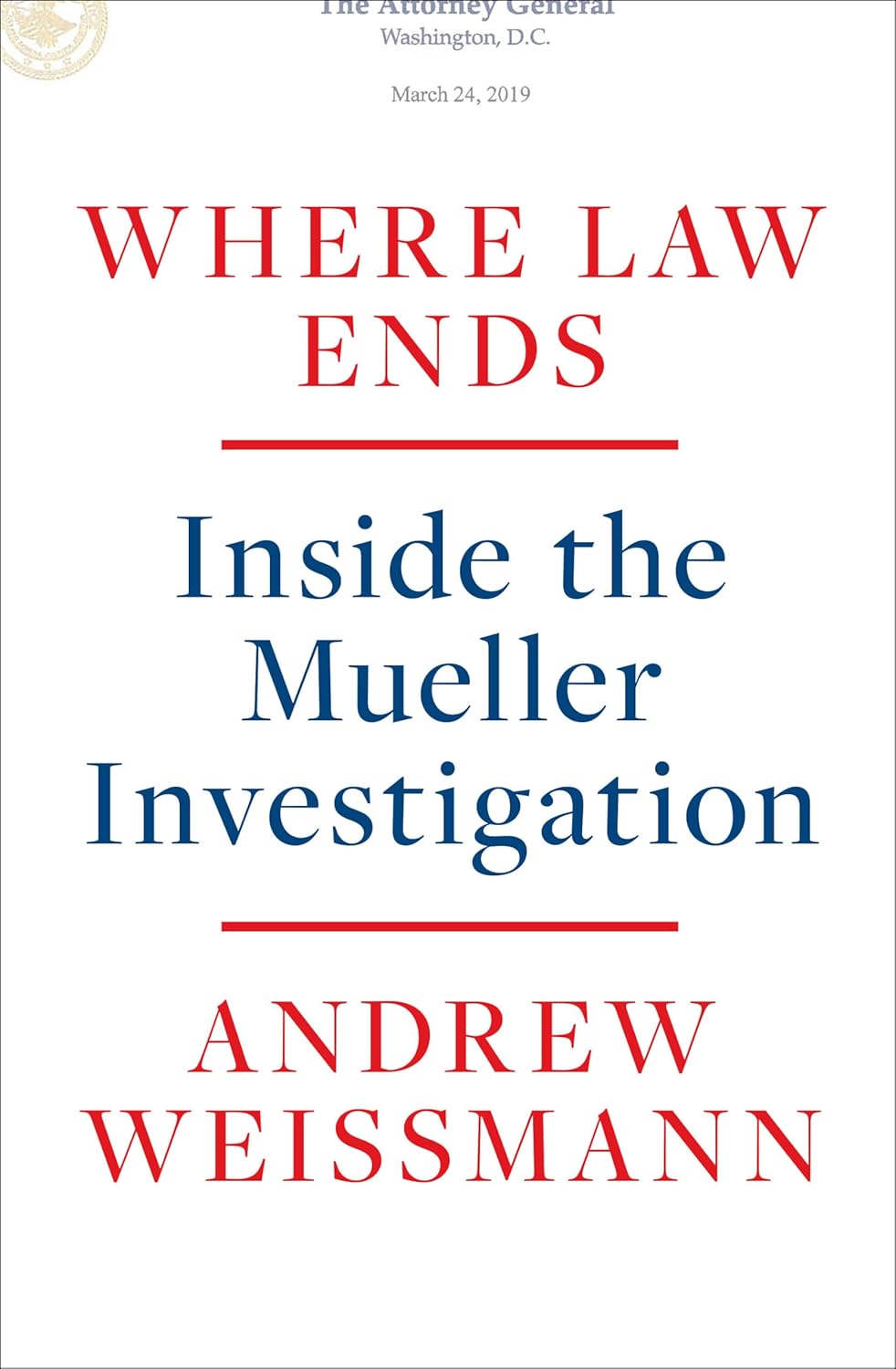432 pages
en language
Published Sept. 28, 2020 by Random House.

432 pages
en language
Published Sept. 28, 2020 by Random House.
In May 2017, Robert Mueller was tapped to lead an inquiry into Russian interference in the 2016 presidential election, coordination by foreign agents with Donald Trump’s campaign, and obstruction of justice by the president. Mueller assembled a “dream team” of top prosecutors, and for the next twenty-two months, the investigation was a black box and the subject of endless anticipation and speculation—until April 2019, when the special counsel’s report was released.
In Where Law Ends, legendary prosecutor Andrew Weissmann—a key player in the Special Counsel’s Office—finally pulls back the curtain to reveal exactly what went on inside the investigation, including the heated debates, painful deliberations, and mistakes of the team—not to mention the external efforts by the president and Attorney General William Barr to manipulate the investigation to their political ends.
Weissmann puts the reader in the room as Mueller’s team made their most consequential decisions, such as …
In May 2017, Robert Mueller was tapped to lead an inquiry into Russian interference in the 2016 presidential election, coordination by foreign agents with Donald Trump’s campaign, and obstruction of justice by the president. Mueller assembled a “dream team” of top prosecutors, and for the next twenty-two months, the investigation was a black box and the subject of endless anticipation and speculation—until April 2019, when the special counsel’s report was released.
In Where Law Ends, legendary prosecutor Andrew Weissmann—a key player in the Special Counsel’s Office—finally pulls back the curtain to reveal exactly what went on inside the investigation, including the heated debates, painful deliberations, and mistakes of the team—not to mention the external efforts by the president and Attorney General William Barr to manipulate the investigation to their political ends.
Weissmann puts the reader in the room as Mueller’s team made their most consequential decisions, such as whether to subpoena the president, whether to conduct a full financial investigation of Trump, and whether to explicitly recommend obstruction charges against him. Weissmann also details for the first time the debilitating effects that President Trump himself had on the investigation, through his dangling of pardons and his constant threats to shut down the inquiry and fire Mueller, which left the team racing against the clock and essentially fighting with one hand tied behind their backs.